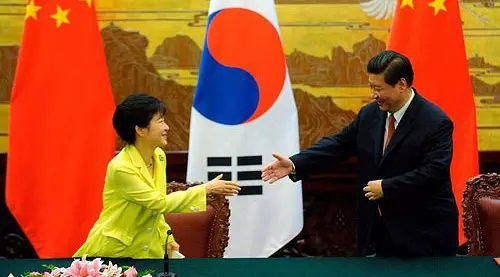By APD writer Lu Jiafei
Washington, Mar.1 (APD) - For U.S. President Donald Trump, the climate change debate is never about science and facts. Rather, it is prime fodder for him to feed up the populism that sent him to the White House.
As the most powerful global warming denier, Trump’s willful ignorance of the climate crisis should raise concerns. But what should be equally alarming is his compelling desire to spread that ignorance.
Donald Trump on Climate Change Agreement
In a recent address to the Conservative Political Action Committee (CPAC), by wrongfully naming China and other developing countries to defend his last year’s fateful decision to withdraw the United States from the Paris Agreement on climate change, Trump again hurled misleading statements to his coal- loving supporters.
“They basically wanted to take our wealth away. They did not want us to use our wealth power. We knocked out the Paris Climate Accord,” Trump claimed. “Would have been a disaster for our country.”
While fulfilling a crucial campaign promise, Trump’s decision to exit the Paris Agreement, the landmark 2015 global accord to fight climate change, left the United States completely isolated in the international community.
In the CPAC speech unsurprisingly replete with raving and vaunt, Trump defended his decision not by casting doubt on climate change. Instead, he blamed China and other developing countries.
“What is (Paris Agreement) does is it makes us uncompetitive with countries… You know, China, their agreement did not kick in until 2030,” Trump claimed. “Our agreement kicks in immediately.”
It was outright lie.
To begin with, China does produce more carbon dioxide, one of the primary greenhouse gases responsible for climate change, than the United States. But if you take into consideration the tremendous population gap between China and the United States, the two largest carbon polluters, the latter produced more than double the carbon dioxide emission of China on a per capita basis.
Then, if Trump genuinely wanted to start the heated debate over who should take the most responsibility for climate action, historical emissions must be included in the equation.
According to the data from the World Resources Institute, the United States tops the list of the top 10 nations as measured by their cumulative carbon dioxide emissions between 1850 and 2007.
Also, scientifically speaking, if greenhouse gas emissions are measured in terms of individuals’ carbon footprint, or consumption of products- arguably the best measure of responsibility for global warming- the U.S. figure is 20.2, five times that of China.
Historically speaking, the United States and other developed western industrialized nations have contributed most to global warming. But the charm of the Paris Agreement lies in its success to include every single country, now except for Trump’s America, in a historic fight against the global warming.
A woman protests Trump's climate change policies
To meet the goal of keeping average global temperature rise this century well below two degrees Celsius above pre- industrial levels, developed countries submitted plans on how they would reduce actual emissions, while developing countries submitted plans on how they would lower emissions.
The purpose of the distinction was clear: both historically speaking and on the per capita basis, developed countries often produce more greenhouse gases, thus making them “continue taking the lead by undertaking economy- wide absolute emission reduction targets,” according to the agreement text.
We should extol the Paris Agreement, as it treats each nation’s respective responsibility not equally but justly. We should extol the Agreement because it respects developing countries’ rights to seeking better life for its people.
Unfortunately, the necessity of taking collective actions to tackle a global issue is always beyond Trump’s comprehension. For a man with deep aversion to multilateralism, the reasonable demand that China and other developing countries will first have to peak their carbon dioxide emissions before starting to reduce actual emission simply cannot be tolerated.
Lu Jiafei, researcher of APD Institute. After spending one year in Palestine covering the Israeli-Palestinian conflict between 2013 and 2014, Lu moved to Washignton, D.C. and covered the 2016 U.S. presidential election till the very end of Donald Trump’s upset victory. He is a political contributor to APD.
(ASIA PACIFIC DAILY)
 简体中文
简体中文




